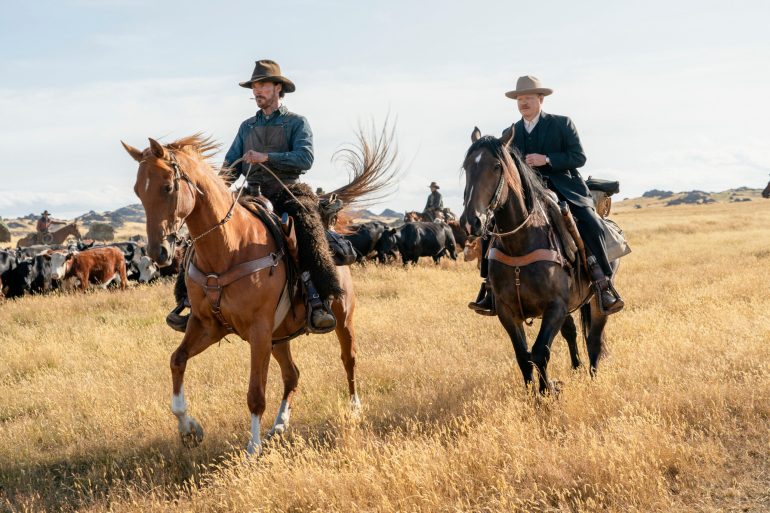Expectations were understandably high for Jane Campion’s first feature film in 12 years, but the majority of critics believe The Power of the Dog has a deserved place among her previous successes following its world premiere at the Venice International Film Festival on Thursday.
Campion’s drama – a Netflix Original – based on the 1967 novel by Thomas Savage received a four-minute standing ovation and is already being touted as an awards contender.
Set in the 1920s, the Australia-New Zealand co-production stars Benedict Cumberbatch and Jesse Plemons as brothers Phil and George Burbank, who own the biggest ranch in the Montana valley.
When George secretly marries local widow Rose (Kirsten Dunst), a shocked and angry Phil wages a relentless war to destroy her, using her effeminate son Peter (Kodi Smit-McPhee) as a pawn.
Like Campion’s Palme d’Or-winning drama The Piano, The Power of the Dog was filmed in New Zealand, leading reviewers to draw inevitable comparisons between the two films.
In a five-star review for the BBC, Nicholas Barber wrote that while there were “echoes” of The Piano in the main characters of The Power of the Dog, the latter was “darker, stranger, and horribly gripping in its own right”.
“Unless you’ve read the novel by Thomas Savage from which it’s adapted, it’s impossible to guess where it’s going,” he wrote.
Variety‘s Owen Gleiberman was less complimentary in his comparison, noting there was a key difference in how the Campion presented the characters to the audience in each film.
“In the earlier film, Holly Hunter played a woman who chose not to speak but declaimed her spirit with the most enthralling inner voice of any movie character that year,” he said.
“In The Power of the Dog, the characters have secrets, buried motives, hidden drives, yet the filmmaker treats them all, in a certain way, like puzzle pieces, fitting them into a grand scheme that connects with the audience in an overly programmatic way.”
Critics were more unanimous when it came to the performances of the lead actors, especially Australian Smit-McPhee, who The Hollywood Reporter‘s David Rooney described as “simply extraordinary” in the “exquisitely crafted” film.
IndieWire‘s David Ehrlich identified the young actor’s portrayal as one of the more captivating aspects of the film.
“Compellingly expressed through Smit-McPhee’s reedy self-assurance (whose take on the character seems to stem from Savage’s description that ‘no one could close a door more quietly than he), Peter’s desire is the mystery at the center of a rivetingly tense movie that screws tight like a Patricia Highsmith thriller without forsaking its Western splendor,” he said.
There was also consensus on Campion’s ability to hold her audience’s attention.
Deadline‘s Todd McCarthy wrote that while there moments when the storytelling “seemed to go a bit off-track”, it remained a “serious, ambitious, living and breathing work” that “ignites a mix of feelings that you can stew about for days and makes you want to examine it in the light from different angles”.
Writing for Vulture, Bilge Ebiri said Campion preserved “the simplicity of Savage’s prose with the understated ease of her own storytelling”.
“She has always managed to enter her protagonists’ minds by focusing on the external, on the things they see and touch and the thick air around them,” he wrote.
“In her work, the environment is a force in itself, both reflecting and fueling the characters’ psychological states.”
The Power of the Dog is produced by See-Saw Films, Brightstar, BBC Films, Big Shell Films and Max Films.
Netflix has the worldwide rights to The Power of the Dog excluding the UK. Transmission Films will distribute theatrically in Australia and New Zealand.


